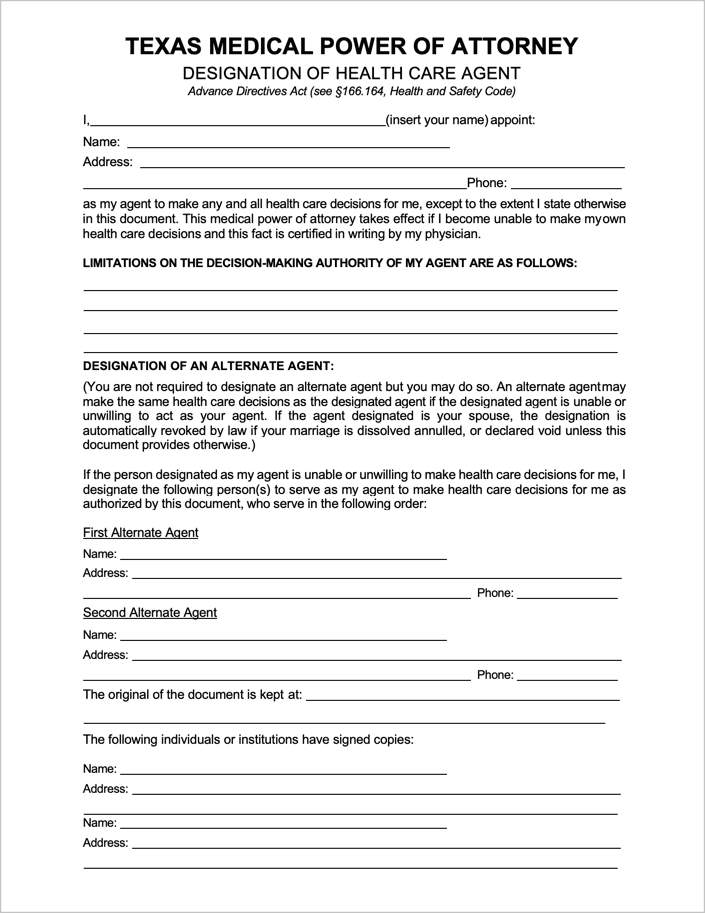Texas Medical Power of Attorney Form
A Texas medical power of attorney (“designation of health care agent”) is a type of advance directive that an individual (the declarant) uses to assign another individual (the agent) to make their health-related decisions. The agent is responsible for making these medical choices if the declarant becomes unable to communicate their wishes. Unlike other POAs, the form automatically gives the agent sweeping powers over the principal’s medical decisions. However, a section on the form allows the principal to state powers they do not want to grant. The principal must take the time to determine which abilities they feel the agent should not have, as the principal will not be able to alter or revoke the POA if they are incapacitated.
For the form to be valid, the declarant must be competent at the time of the form’s creation and execution—a state described by § 166.002.
The agent is only permitted to make decisions under the POA after a physician makes an official written decision stating that the principal is indeed incapacitated. The physician is also required to file the decision with the principal’s medical records.
Additionally, § 166.152 specifically states situations in which the agent has no power. They are:
- Inpatient mental health services that are voluntary;
- Treatment that causes convulsions;
- Psychosurgery (ex: a lobotomy);
- Abortion; and
- Purposeful neglect of the principal by declining to give them comfort.
If the principal needs to revoke the power of attorney (before becoming incapacitated), they can do so for any reason at any time using a revocation form.
Laws: §§ 166.151 to 166.209
Signing requirements (§ 166.032): State law requires that the declarant signs the POA in the presence of either:
- Two (2) witnesses (who are also required to sign the document). Per § 166.003, at least one (1) of the witnesses must meet the qualifications listed, OR
- A Notary Public.
